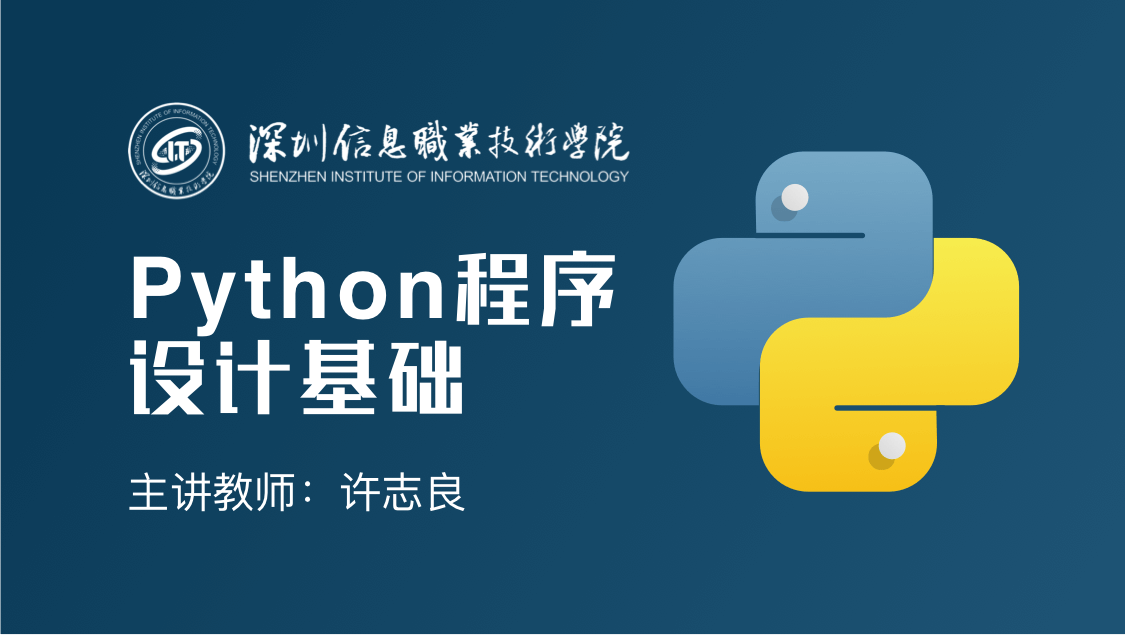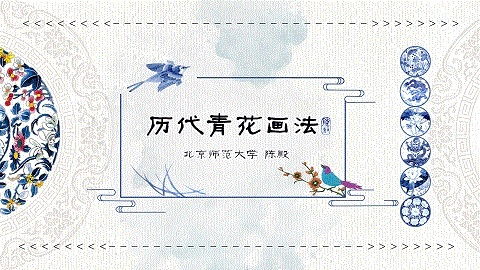
庄子寓言及其智慧课程:前往报名学习
想读懂鲲鹏乘风而起的智慧与格局吗?想学会庖丁解牛一般地破解日常的困境吗?想用英语侃侃而谈中国哲学史上最为瑰丽清奇的寓言故事吗?一起加入我们的《庄子寓言及其智慧》英语课程吧——欣赏挥洒泼墨的古风动画,品读奇思妙想的庄子寓言,启迪融通古今的人生智慧。
开设学校:华南理工大学;学科:文学文化、
想读懂鲲鹏乘风而起的智慧与格局吗?想学会庖丁解牛一般地破解日常的困境吗?想用英语侃侃而谈中国哲学史上最为瑰丽清奇的寓言故事吗?一起加入我们的《庄子寓言及其智慧》英语课程吧——欣赏挥洒泼墨的古风动画,品读奇思妙想的庄子寓言,启迪融通古今的人生智慧。
-1.1 Lesson 1 Module Guide 单元导学
--1.1.2 Lesson 1 Module Guide
-1.2 Lesson 2 The Man Named Zhuangzi 庄子其人
--1.2.1 Lesson 2 The Man Named Zhuangzi
--1.2.2 Lesson 2 The Man Named Zhuangzi
-1.3 Lesson 3 The Book of Zhuangzi 庄子其书
--1.3.1 Lesson 3 The Book of Zhuangzi
--1.3.2 Lesson 3 The Book of Zhuangzi
-1.4 Lesson 4 The Language of Zhuangzi 庄子其言
--1.4.1 Lesson 4 The Language of Zhuangzi
--1.4.2 Lesson 4 The Language of Zhuangzi
-1.5 Lesson 5 The Ideal Life of Zhuangzi 庄子其志
--1.5.1 Lesson 5 The Ideal Life of Zhuangzi
--1.5.2 Lesson 5 The Ideal Life of Zhuangzi
-1.6 Experts' Views on Zhuangzi's Wisdom 庄子智慧专家谈
--1.6.1 Is zhuangzi negative in nature? 庄子消极吗?
--Interview Question(1)
--1.6.2 Is zhuangzi still inspiring in today's society? 庄子过时了吗?
--Interview Question(2)
-1.7 Students' Understanding of Zhuangzi's Wisdom 庄子智慧学生说
--1.7.1 Zhuangzi's Spiritual World 庄子的精神世界
--1.7.2 The Development of Zhuangzi's Ideas 庄思想发展
--1.7.3 English Translation of Zhuangzi 庄子的英文翻译
--1.7.4 Introduction of Zhuangzi 庄子生平介绍
--1.7.5 Zhuangzi's Home State 庄子出生国
-2.1 Lesson 1 Module Guide 单元导学
--2.1.1 Lesson 1 Module Guide
-2.2 Lesson 2 On Taking Stock 审时度势
--2.2.1 Lesson 2 On Taking Stock
--2.2.2 Lesson 2 On Taking Stock
-2.3 Lesson 3 On Courage 何谓勇气
--2.3.2 Lesson 3 On Courage
-2.4 Lesson 4 On Contentment 知足常乐
--2.4.1 Lesson 4 On Contentment
--2.4.2 Lesson 4 On Contentment
-2.5 Lesson 5 On Modesty 谦虚谨慎
--2.5.2 Lesson 5 On Modesty
-2.6 Experts' Views on Zhuangzi's Wisdom 庄子智慧专家谈
--2.6.1 What’s the relationship between Zhuangzi and Huizi? 惠子与庄子是何关系?
--Interview Question(1)
--2.6.2 How do we understand the debate in Happy Fish? “鱼之乐”辩什么?
--Interview Question(2)
-2.7 Students' Understanding of Zhuangzi's Wisdom 庄子智慧学生说
--2.7.1 Historical Allusions and Cultural Stories 历史典故及文化故事
--2.7.2 Life Wisdom——Yan Hui Refuses Office 颜回拒官的启示
--2.7.3 On Taking Stock 审时度势候时机
--2.7.4 The Enlightenment of Zhuangzi's Fables 庄子的智慧启迪
-【计分贴3 第2单元】Character analysis
-3.1 Lesson 1 Module Guide 单元导学
--3.1.2 Lesson 1 Module Guide
-3.2 Lesson 2 Essence of Learning 习技要义
--3.2.1 Lesson 2 Essence of Learning
--3.2.2 Lesson 2 Essence of Learning
-3.3 Lesson 3 Importance of Practicing 重在实践
--3.3.1 Lesson 3 Importance of Practicing
--3.3.2 Lesson 3 Importance of Practicing
-3.4 Lesson 4 Internal Factors 内因影响
--3.4.1 Lesson 4 Internal Factors
--3.4.2 Lesson 4 Internal Factors
-3.5 Lesson 5 External Factors 外因作用
--3.5.1 Lesson 5 External Factors
--3.5.2 Lesson 5 External Factors
-3.6 Experts' Views on Zhuangzi's Wisdom 庄子智慧专家谈
--3.6.1 What are the differences between Zhuangzi’s and western fables? 庄子寓言与西方寓言有何异同?
--Interview Question(1)
--3.6.2 How is Zhuangzi’s fable different from Mencius’s and Han Feizi’s? 庄子寓言与孟子、韩非子寓言有何异同?
--Interview Question(2)
-3.7 Students' Understanding of Zhuangzi's Wisdom庄子智慧学生说
--3.7.1 Dongshi Imitated a Beauty Blindly 东施效颦
--3.7.2 The Knife of Cook Ting 庖丁解牛
--3.7.3 The Life of Huizi 惠子生平
--3.7.4 The Skill of Chicken Dissection 自编寓言—剖鸡之技
--3.7.5 Zhuangzi and Huizi 庄子与惠子
-征文赛
-征图赛
-4.1 Lesson 1 Module Guide 单元导学
--4.1.2 Lesson 1 Module Guide
-4.2 Lesson 2 Emphasizing the Soul 思想更重要
--4.2.1 Lesson 2 Emphasizing the Soul
--4.2.2 Lesson 2 Emphasizing the Soul
-4.3 Lesson 3 Pursuing Freedom 追求自由
--4.3.1 Lesson 3 Pursuing Freedom
--4.3.2 Lesson 3 Pursuing Freedom
-4.4 Lesson 4 Respecting the Nature 尊重天性
--4.4.1 Lesson 4 Respecting the Nature
--4.4.2 Lesson 4 Respecting the Nature
-4.5 Lesson 5 Searching for Dao 追求道
--4.5.1 Lesson 5 Searching for Dao
--4.5.2 Lesson 5 Searching for Dao
-4.6 Experts' Views on Zhuangzi's Wisdom 庄子智慧专家谈
--4.6.1 What are the 3 forms of “yan” and their relationships? 何为《庄子》三言及其关系?
--Interview Question(1)
--4.6.2 Why does Zhuangzi sing upon his wife's death? 庄子妻死为何鼓盆而歌?
--Interview Question(2)
-4.7 Students' Understanding of Zhuangzi's Wisdom 庄子智慧学生说
--4.7.1 Separation is for Better Reunion 分别是为了更好的重逢
--4.7.3 Respecting the Nature 自编寓言—尊重天性
--4.7.4 Zhuangzi's Wisdom in Life 智慧启迪
-【计分贴7 第4单元】Explore mind maps & character analyses
-5.1 Lesson 1 Module Guide 单元导学
--5.1.1 Lesson 1 Module Guide
-5.2 Lesson 2 Understanding the Rules 明其理
--5.2.1 Lesson 2 Understanding the Rules
--5.2.2 Lesson 2 Understanding the Rules
-5.3 Lesson 3 Transferring the Use 广其用
--5.3.1 Lesson 3 Transferring the Use
--5.3.2 Lesson 3 Transferring the Use
-5.4 Lesson 4 Perceiving the Self 接纳自我
--5.4.1 Lesson 4 Perceiving the Self
--5.4.2 Lesson 4 Perceiving the Self
-5.5 Lesson 5 Accepting the Others 容纳他人
--5.5.1 Lesson 5 Accepting the Others
--5.5.2 Lesson 5 Accepting the Others
-5.6 Experts' Views on Zhuangzi's Wisdom 庄子智慧专家谈
--5.6.1 What is the relationship between Laozi and Zhuangzi? 老子和庄子是何种关系?
--Interview Question(1)
--5.6.2 How to understand Laozi in the book of Zhuangzi? 如何看待《庄子》中的老子形象?
--Interview Question(2)
-5.7 Students' Understanding of Zhuangzi's Wisdom 庄子智慧学生说
--5.7.1 Uniformity of All Things 齐物论
--5.7.3 Baoya Snapped the String 伯牙绝弦
--5.7.4 Shang Yang Reform 商鞅变法
--5.7.5 The Butterfly Effect 蝴蝶效应
-6.1 Lesson 1 Module Guide 单元导学
--6.1.2 Lesson 1 Module Guide
-6.2 Lesson 2 Awareness of Danger 察觉危机
--6.2.1 Lesson 2 Awareness of Danger
--6.2.2 Lesson 2 Awareness of Danger
-6.3 Lesson 3 Acceptance of Death 淡泊生死
--6.3.1 Lesson 3 Acceptance of Death
--6.3.2 Lesson 3 Acceptance of Death
-6.4 Lesson 4 Tolerance of Co-existence 包容共存
--6.4.1 Lesson 4 Tolerance of Co-existence
--6.4.2 Lesson 4 Tolerance of Co-existence
-6.5 Lesson 5 Art of Love 爱亦有道
--6.5.2 Lesson 5 Art of Love
-6.6 Experts' Views on Zhuangzi's Wisdom 庄子智慧专家谈
--6.6.1 How was the book of Zhuangzi preserved? 《庄子》这本书是怎么流传至今的?
--Interview Question(1)
--6.6.2 How to critically perceive Zhuangzi’s thought? 如何辩证地理解庄子思想?
--Interview Question(2)
-6.7 Students' Understanding of Zhuangzi's Wisdom 庄子智慧学生说
--6.7.1 Zhuangzi's Philosophy in Our Daily Life 生活中的庄子哲学
--6.7.2 Singing While Beating the Earthen Basin 鼓盆而歌
--6.7.3 The Kungfu Jianghu of Jinyong 金庸的武侠江湖
--6.7.4 Philosophical Enlightenment 庄子哲学启示
--6.7.5 The Weaver at the Edge of the Cliff 自编寓言—崖边织者
-课程大作业---论文式讨论及互评活动
-Final Examination
副教授,华南理工大学外国语学院大英部副主任。研究方向:大学英语教学、信息化教育等。2018年“国家精品在线开放课程”负责人,广东省第一门外语类国家精品在线开放课程。在《外语界》、《外语电化教学》等期刊上发表多篇论文。主编、参编教材5部,其中1部为国家级规划教材,主持省部级项目6项。多门慕课课程负责人:“英美音乐与文化”、“学术英语”、“庄子寓言及其智慧”,共计慕课学生者超过9万多。基于MOOC、SPOC开展混合式教学模式的教学实践与研究,荣获2016年、2019年度广东省高等学校教学质量与教学改革工程项目,2018年广东省综合类教改项目;2017年华南理工大学第八届教学成果奖二等奖;2019年荣获“教育部在线教育研究中心 2018年度智慧教学之星”荣誉称号;2019年荣获广东省教学成果奖一等奖等(排名第四)。
华南理工大学外国语学院讲师,博士。主讲课程包括:《英美音乐与文化》、《英语演讲的艺术》、《大学英语》、《综合英语》。在外研社全国英语微课大赛暨“微课之星”教学竞赛中荣获地区赛冠军、全国赛一等奖,在学院青年教师教学竞赛中获一等奖。指导学生参加广东省英语演讲大赛、外研社杯全国英语演讲大赛、中国日报社21世纪杯全国英语演讲大赛,获广东省冠军、广东省一等奖、全国二等奖、全国十强指导教师奖。主持广东省哲学社会科学规划项目等5项,参与国家社科基金项目、985哲学社会科学基地项目多项。出版译著1部、编著1部,发表CSSCI检索论文、EI检索论文8篇。
Ruan Xichun is a lecturer from the Foreign Languages College at SCUT at the time of this recording. She received her undergraduate degree of English education from Xiangtan Normal University and graduate degree of English language and literature from Shanghai Normal University. Teaching is her childhood dream and she loves discussing and sharing ideas with her students. She loves music, that's why she loves teaching this course of Music and Culture in English. She has been teaching this course for over 5 years, thus she is quite familiar with the topics in the video lessons and she is doing her best to present what she considers important and interesting to you.
At the time of this recording, Belinda has worked with the School of Foreign Language at SCUT since 2014 as a SL English instructor. She received her degree in classical studies with a focus on cultural education from Indiana University. As an instructor she not only teaches the language but is passionate about empowering students to take control of their own English learning, guiding them to find interesting resources to practice and learn outside the classroom. The opportunity to work on this project was exciting as it fulfilled both her love of learning different culture while creating a great resource for learners of the English language.
孙雪霞,1975年生,广东汕头人。2004年毕业于华南师范大学,获文学博士学位,2008-2010年在广东外语外贸大学外国语言文学博士后流动站工作,2012-2013年到美国南卡哥伦比亚大学做访问学者。2005年至今在华南师范大学文学院任职,2008年晋升为副教授,2014年晋升为教授。现为古代文学硕士导师组召集人,主要从事古代文学、中国文化的教学研究。 为本科生和研究生讲授《先秦文学史》《汉魏六朝文学史》《中国文化概论》《诗经导读》《先秦诸子导读》《庄子导读》《楚辞导读》《人文学概论》《古典诗词鉴赏方法》等课程,出版《文学庄子探微》(入选“岭南博士文库”)《神话视野下的庄子神话研究》等专著,主编《中国文化概论》等教材,主持国家社科基金1项,省部级项目1项,厅级项目多项,在《文学评论》《现代哲学》《华南师范大学学报》《华中师范大学学报》等核心刊物上发表论文数十篇。






